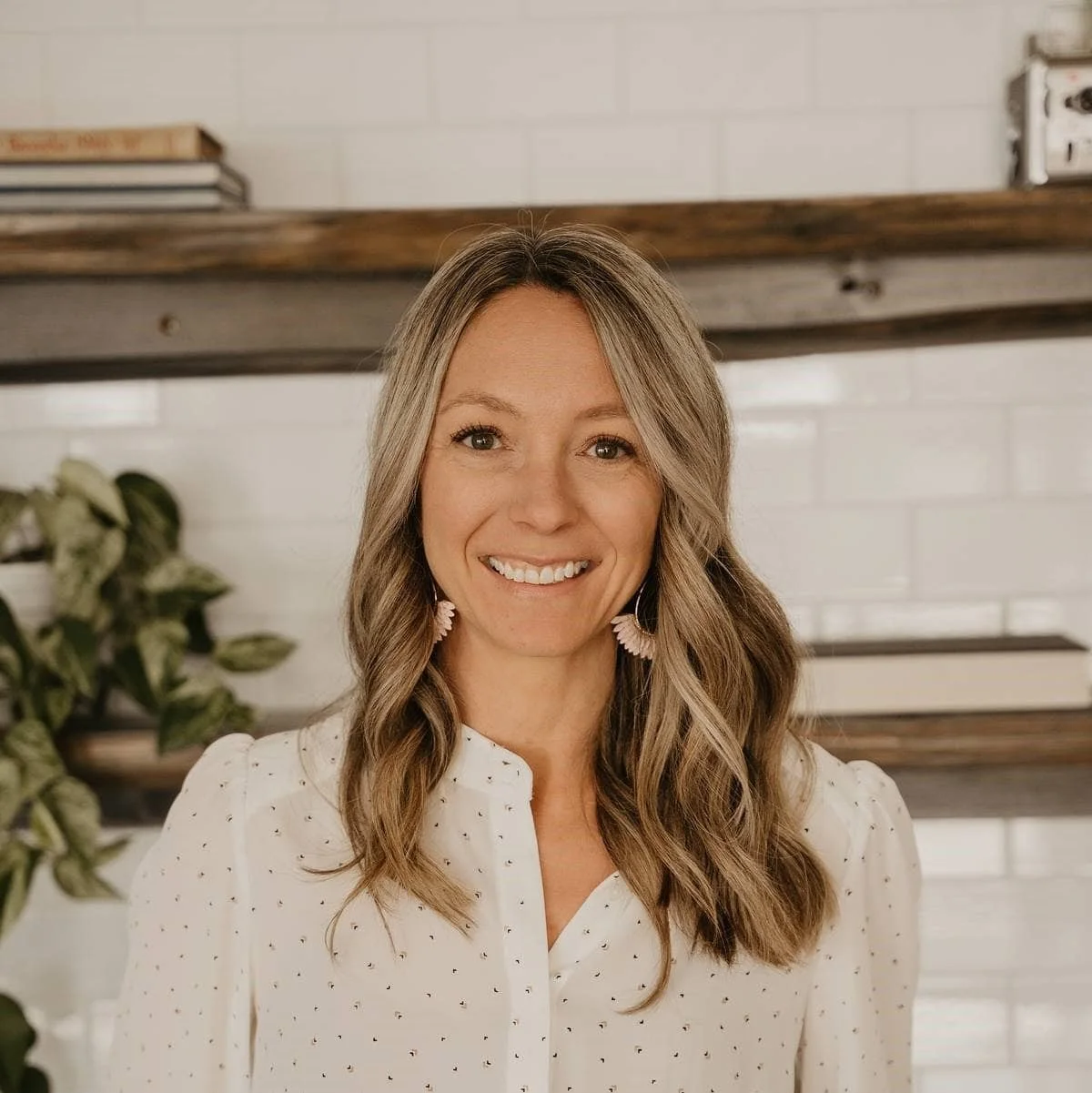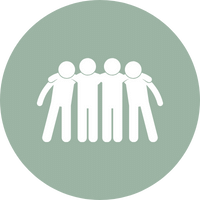
Expert Phobia Therapists in Ontario - Online CBT Therapy
You're not alone — we're here to help you face your fear, one step at a time. Book a free consult by clicking the link below. We will match you with a qualified and experienced phobia therapist.
Get help for your phobia without leaving home
Living with a phobia can shape your day in ways other people don’t see. You might avoid certain places, make up excuses to stay home, or feel on edge thinking your fear.
Over time, fear can start to shrink your world — making even small things feel overwhelming.
If you live with a phobia, you’re not alone. Whether it’s a fear of flying, driving, vomiting, needles, elevators, or something else, phobias can feel intense.
We offer online therapy across Ontario using Cognitive Behavioural Therapy (CBT). CBT is one of the most proven and effective ways to treat phobias (Wolitzky-Taylor et al., 2008).
At Virtual CBT, you’ll meet with a trained CBT therapist who understands what you’re going through.
Our therapists will help you face your fear one small step at a time — at a pace that feels right for you.
Book a free consultation to learn how we can help.
Learn more about our therapy fees.
We also offer psychological assessments.
Why Virtual CBT Clinic for My Phobia?
Access Therapy From Anywhere in Ontario, Quebec or B.C.
Our skilled therapists are here to help! Whether you're in Toronto, Ottawa, or anywhere else in Ontario, you can access counselling from the comfort of your own home. Through our secure video platform, you can connect with our phobia experts.
Learn CBT Tools that Work
We understand how overwhelming anxiety and phobias can be. That's why our therapists focus on empowering you with coping tools and skills tailored to your needs. Together, we'll work to overcome your fears and manage your phobia so you can start feeling better.
We Have a Variety of Skilled Phobia Specialists
With a diverse team of psychotherapists, we'll find the right match for you. We have a variety of qualified and experienced specialists to choose from!
We Use Therapies that Work!
Are you curious about the effectiveness of Cognitive Behavioural Therapy (CBT) for anxiety? Learn more about the Effectiveness of CBT Therapy for Anxiety.
Connect with an Phobia Therapist
Don't let anxiety hold you back any longer. Click the button below to learn more about our therapies and how they can help you feel better.
Our Clinical Directors will meet with you during your free consultation. They will match you with a qualified CBT therapist who specializes in your symptoms. We have a variety of therapists to work with including social workers, clinical psychologists and registered psychotherapists.
Meet Our Online Phobias Therapists
-

Celissa Vipond, RSW, MSW
-

Vanessa Moser, RSW, MSW
-

Jennifer O'Connor, RP
-

Alpar Szotyori, RP
-

Alana Weinberg, RSW, MSW
-

Angela Hammond, RSW, MSW
-
Danielle Pearson, RSW, MSW
-

Denisa Caceres, RP
-

Kimberley Ross, RSW
What is a phobia?
A phobia is a strong fear of a specific thing or situation. Some common examples include:
Driving
Vomiting (emetophobia)
Flying
Needles or medical procedures
Heights
Spiders, bugs or animals
Public speaking
Elevators or small spaces
These fears might feel impossible to face. You may find yourself avoiding situations, planning your day around your fear, or feeling frustrated that no one really “gets it.”
Phobias are more common than people think. The good news? They’re also highly treatable with CBT (American Psychiatric Association, 2022).
Phobias (Source: Osmosis from Elsevier)
What’s the difference between fear and a phobia?
Fear is a natural reaction to danger. A phobia is a fear that’s out of proportion to the actual threat and lasts more than six months (American Psychiatric Association, 2022). It may cause panic, avoidance, or intense stress.
Even if your fear seems “irrational,” it’s real to you. That’s what matters — and it’s what we work with in therapy.
How does CBT help with phobias?
CBT helps you change how you think, feel, and respond to fear. We’ll help you:
Understand the root of your phobia
Learn what keeps it going
Reduce safety behaviours and avoidance
Build confidence through gradual exposure
Rewire fear patterns in your brain
CBT doesn’t just teach you how to “cope” — it helps you break the cycle of fear so your world gets bigger again (Craske et al., 2014).
Do I need a diagnosis for phobia therapy?
No. You don’t need a formal diagnosis to get help. If fear is getting in the way of your daily life — even a little — you’re in the right place.
Is online CBT as effective as in-person therapy?
Yes. Online CBT is as effective as in-person therapy for treating specific phobias (Olthuis et al., 2016). Plus, virtual therapy lets you get support from the comfort and safety of your own home. This is especially helpful when your phobia makes leaving the house hard.
What to expect from CBT therapy for Phobias
You’ll meet one-on-one with a CBT therapist who specializes in anxiety and phobias. Sessions are 50 minutes, confidential, and take place online. This means that you can be anywhere in Ontario for your therapy sessions.
In your first session, we’ll learn more about what you’re experiencing. From there, we’ll create a plan that’s realistic and paced in a way that feels manageable.
We’ll go step by step. You’re in control the whole time.
CBT Techniques for Phobias
CBT gives you practical tools to help you work through your fear — not just talk about it. Your therapist will teach you how to face your phobia in small, manageable steps. Over time, you can build confidence and feel more in control.
Here are some of the techniques we use in therapy for phobias:
Exposure Therapy
Exposure means facing the thing you fear in a gradual way. We’ll never throw you into the deep end. Instead, we work together to create a step-by-step plan (called a fear ladder).
A fear ladder helps you approach your fear at your own pace. Most people start with something that is mildly uncomfortable. Over time, you learn that you can handle more than you thought.
Behavioural Experiments
We test out your fearful predictions in real life or through imagination. For example, if you're afraid you’ll faint when you get a needle, we might explore ways to test that belief.
These experiments give your brain real evidence that your fear isn’t always telling the truth.
Eliminating Safety Behaviours
Many people use little habits or "tricks" to avoid feeling afraid. Many people will refer to these as "coping strategies". While these things can feel helpful in the moment, they actually keep fear going in the long run.
In therapy, we help you reduce or stop these behaviours so your brain learns you’re safe without them. You will learn that you can cope without any special tools.
Learn more about safety behaviours.
Thinking Skills (Cognitive Restructuring)
Phobias often come with scary “what if” thoughts. CBT helps you notice these patterns and challenge them. You’ll learn how to spot unhelpful thoughts and replace them with more balanced ones.
With some phobias, it may be more helpful to sit with uncertain thoughts instead of use thinking skills.
Acceptance & Willingness
Sometimes, fighting the fear just makes it stronger. CBT teaches you how to make room for discomfort instead of trying to get rid of it right away. You’ll learn to say, “This feeling is hard, but I can handle it.”
Mindfulness
Mindfulness helps you stay grounded in the present moment. Mindfulness practices can help you pause, breathe, and respond to fear with more clarity. Read more about mindfulness for anxiety.
Relapse Prevention
Once you’ve made progress, we’ll help you stay there. CBT includes planning ahead for high-stress times or future triggers.
Relapse prevention helps you stay on track so you don’t feel like you’re back at square one.
Phobias We Treat at Virtual CBT
Phobias are intense, often overwhelming fears of specific situations, objects, or places. They can make everyday life harder, but you don’t have to face them alone.
We treat a wide range of phobias. If your fear isn’t mentioned, don't worry - people can have a phobia of just about anything.
Here are some of the most common fears
Emetophobia (Fear of Vomiting)
Emetophobia is the intense fear of throwing up — either yourself or others. It can show up as:
Avoiding certain foods or restaurants
Checking your body for signs of illness
Fearing travel, pregnancy, or public spaces
👉 Read more: Overcoming Emetophobia with a CBT Therapist
Driving Phobia
Do you avoid driving, especially on highways or bridges? Maybe you feel trapped behind the wheel or panic when someone else drives. You're not alone — driving anxiety is common and treatable.
👉 Read more: Driving Anxiety Therapy
Arachnophobia (Fear of Spiders)
Even the thought of a spider can trigger fear for some people. You may:
Avoid basements, sheds, or outdoor spaces
Feel hypervigilant at home or on vacation
Panic at images or videos of spiders
👉 Read more: Overcoming the Fear of Spiders with CBT
Fear of Swimming
Fear of swimming or deep water can stem from past experiences or the fear of losing control. Sometimes people develop phobias for no particular reason. This can keep you from enjoying vacations, pools, or water activities with family.
👉 Read more: Conquering the Fear of Swimming
Fear of Blood, Needles, or Medical Procedures
This type of phobia often causes fainting, panic, or avoidance of important medical care. It’s known as Blood-Injection-Injury (BII) phobia. BII requires a specialized CBT approach that includes applied tension techniques.
👉 Read more: Overcoming Phobia of Needles and Blood
Claustrophobia (Fear of Enclosed Spaces)
Claustrophobia is the fear of small or enclosed spaces. This can include things like elevators, crowded rooms, tunnels, or MRI machines. You might avoid certain places or feel panicked when you can’t find a quick exit.
👉 Read more: Exposure Therapy for Claustrophobia – Blog Post
Agoraphobia
Agoraphobia involves the fear of being in situations where escape might feel hard. This might include public places, crowded stores, buses, or even leaving home. It often includes fear of having a panic attack in public.
👉 Read more: Agoraphobia Therapist – Blog Post
Ornithophobia (Fear of Birds)
Ornithophobia is a strong fear of birds. This can include pigeons, seagulls, or even smaller birds near your home or on walks. You might avoid parks, outdoor patios, or certain streets to stay away from them.
👉 Read more: Bird Phobia Treatment – Blog Post
Thanatophobia (Fear of Death or Dying)
Thanatophobia is a deep fear of death — either your own or the death of loved ones. It can lead to racing thoughts, panic, and constant worry about illness, accidents, or the future.
👉 Read more: Fear of Death Phobia – Blog Post
Flight Phobia (Fear of Flying)
Flight phobia is a strong fear of flying that can stop you from traveling or visiting loved ones. You might feel overwhelmed by thoughts of turbulence, crashes, or losing control. Some people might even have panic attacks.
👉 Read more: Flight Phobia Treatment – Blog Post
Start therapy from anywhere in Ontario
You don’t need to “just get over it” — and you don’t have to face your fear alone. Phobias are treatable, even if they’ve been around for years. With the right support, you can stop avoiding and start living again.
Book a free 15-minute consultation with a CBT therapist today. We’ll help you take the first step — one small, doable moment at a time.
Frequently Asking Questions (FAQ): Phobias
What’s the best treatment for phobias?
The most effective treatment for phobias is Cognitive Behavioural Therapy (CBT), especially when it includes exposure therapy (Wolitzky-Taylor et al., 2008).
Can a therapist help me overcome a phobia?
Yes. A trained CBT therapist can help you understand your fear, teach you practical strategies, and guide you through small, safe steps to reduce it.
Is CBT good for phobias?
CBT is the gold standard treatment for phobias. Research shows it helps people reduce fear, stop avoidance, and regain control over their lives (Craske et al., 2014).
Can I do CBT therapy online in Ontario?
Yes. Virtual CBT is available across Ontario, and it’s just as effective as in-person therapy (Olthuis et al., 2016).
You don’t have to live with this fear forever
Phobias can shrink your world. But with the right support, your world can grow again. If you’re ready to take the first step — or even just learn more — we’re here for you.
Book a free 15-minute consultation today with a CBT therapist in Ontario. Let’s talk about what’s possible.
References
American Psychiatric Association. (2022). Diagnostic and statistical manual of mental disorders (5th ed., text rev.; DSM-5-TR).
Craske, M. G., Treanor, M., Conway, C. C., Zbozinek, T., & Vervliet, B. (2014). Maximizing exposure therapy: An inhibitory learning approach. Behaviour Research and Therapy, 58, 10–23.
Hofmann, S. G., Asnaani, A., Vonk, I. J., Sawyer, A. T., & Fang, A. (2012). The Efficacy of Cognitive Behavioral Therapy: A Review of Meta-analyses. Cognitive Therapy and Research, 36(5), 427–440.
Olthuis, J. V., Watt, M. C., Bailey, K., Hayden, J. A., & Stewart, S. H. (2016). Therapist-supported Internet cognitive behavioural therapy for anxiety disorders in adults. Cochrane Database of Systematic Reviews, 3.
Wolitzky-Taylor, K. B., Horowitz, J. D., Powers, M. B., & Telch, M. J. (2008). Psychological approaches in the treatment of specific phobias: A meta-analysis. Clinical Psychology Review, 28(6), 1021–1037.














